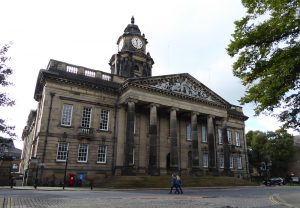The committee structure within the different branches of the Lancaster League of Nations Union (LNU) District Council was similar. Socially, most people serving in the different posts could be described as middle class. A study of the personnel of the Lancaster branch confirms Helen McCarthy’s view that this sector was still socially active and at the same time prepared to work alongside at least a section of the working classes. (1) Genderwise, most of the senior office-holders were male. Lancaster LNU had a President. Like all the officials, he was elected annually. The first, an aristocrat, was merely a figurehead, but after him they were either Oxford University trained clergymen or ‘county,’ working actively. The smaller branches had a Chairman, not a president, often a clergyman. Lancaster’s chairmen came from more varied backgrounds but all of them fell into the category of ‘middle-class’ and all were actively involved. In 1921, there were 14 Vice-Presidents, but only five in 1929. They were a more diverse group. In 1921, there was a Labour Party member and two women. By 1929, three out of five were female.
An Executive Committee, elected annually, appointed the President, Chairman, Secretary and Treasurer each year. It had power to co-opt other members and set up sub-committees such as ‘Education,’ or ‘Ladies.’ After 1924 the Committee appointed District Council Representatives. Another important post was the Subscription Collector. The smaller district branches had a simplified structure, but their Executive Committees always included a Chairman, Secretary and Treasurer, plus often Collectors. (2)
References/Further Reading:
(1) Helen McCarthy, 2011. The British People and the League of Nations. Manchester: Manchester University Press, ch.6.
(2) Lancaster Guardian, Lancaster LNU AGM reports, 1921-1932.


